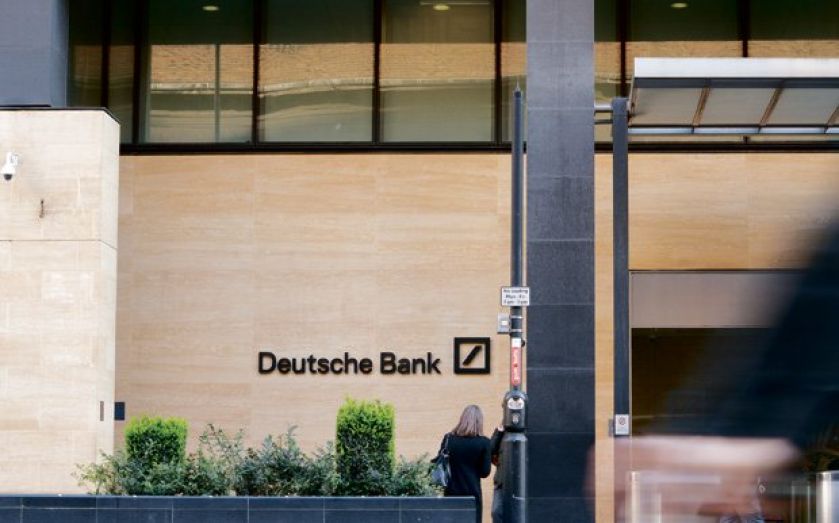Deutsche Bank profits cut in half by litigation costs

DEUTSCHE Bank’s profits were slashed in half by soaring litigation costs in the first quarter, the lender announced yesterday, after it settled a £1.7bn Libor fine with regulators on Thursday.
The German investment bank recorded a strong rise in revenues, joining the industry-wide growth in trading income, but that was more than outweighed by the hefty legal bills.
Net income crashed 49 per cent on the year to €559m (£400m) in the three-month period, compared with €1.1bn a year earlier, despite revenues rising 23.6 per cent to €10.4bn.
Litigation expenses of €1.5bn helped push up non-interest expenses by 34.8 per cent to €8.7bn.
The bank’s bosses maintained that the results were positive, despite the legal costs.
“These results provide a snapshot of a Deutsche Bank which is much stronger than when we began our journey in 2012,” said co-chief executives Anshu Jain and Jurgen Fitschen. “We have delivered robust operating performance despite tight resource discipline and significant investments in regulatory compliance. We have significantly strengthened our capital position. We embark on the next phase of our strategy from a position of strength.”
The financial results were released earlier than planned as the board was already meeting because of the Libor settlement, and approved the quarterly figures at the same time.
Strong points within the set of results include a healthy 9.6 per cent rise in debt sales and trading net revenues at €2.6bn, and a 31 per cent rise in equity sales and trading revenues to €1bn.
The investment bank’s origination and advisory revenues also rose 23 per cent to €784m.
Despite the fall in profits, analysts backed the stock.
“The results underlined our thesis of Deutsche as a value play on recovering investment banking revenues,” said Jefferies analyst Omar Fall. “Common equity tier one was impacted by regulatory headwinds, however, ultimately these results should lead to sizeable earnings upgrades and the strategy update should detail how Deutsche Bank puts the capital debate to bed.”